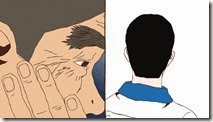 |
 |
 |
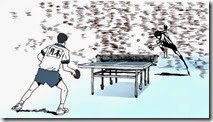 |
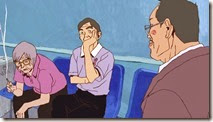 |
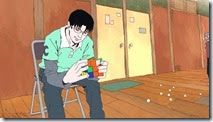 |
I’ve said it before and I’ll say it again – in anime, pedigree almost always wins out.
My headline for this post was going to be something along the lines of “Another wonderful NoitaminA anime finishes its run, and immediately joins the ranks of the forgotten”. The list of such shows – commercially irrelevant and with virtually no impact on mainstream anime fandom’s consciousness – is a long one. But then I happened to stop by Ping Pong’s MAL page, and noted – to my considerable surprise – that it was up to an 8.45 rating. This was after starting out in the low 7’s, causing me to comment at the time how grating it was to see it ranked lower than the other NoitaminA series, the spectacularly mundane Ryuugajou Nanana no Maizoukin.
If you listened to the last RC podcast (the one I <COUGH> hosted) you know that I don’t put much stock in fan ratings in places like MAL – though though are occasionally on-target. But the salient point here is that Ping Pong must have seen a meteoric rise over the last several weeks, and when I checked Stalker points I saw the same trend – the Blu-ray box has skyrocketed all the way up to #39 in all of Amazon Japan’s listings. It’s still not looking like a hit, don’t get me wrong, more like avoiding being a flop – but it’s clear that the last few episodes of this series have connected in a big way. And if you’re a fan of quality, character-driven anime and using the medium as art for art’s sake, I can’t see how you wouldn’t find that encouraging. I sure as hell do.
There weren’t a whole lot of surprises in the final episode. In fact, there haven’t been many surprises in the last half of the series period – they were pretty much all in the first few episodes, and Ping Pong has followed a pretty predictable course for quite some time. But in the final analysis that doesn’t amount to a problem, because the execution was superb and the truth is that Ping Pong ends up being a story about people living out their destiny as much as anything. The Japanese are big on this whole “red string of fate” idea, and that concept seems to be at the heart of this series. All of the people we met were interconnected – both by their feelings, and by the game of table tennis. And this was the story of those connections – how they were formed, how they were tested, and how strong they were.
One thing I want to do in this post is call out the work of the little guys who played Peco and Smile as, well – little guys, because they were an increasingly important part of the series as it progressed (and never more than in the finale). Satomura Hiromu played young Smile, and Nishida Mitsutaka young Peco, and once again we see that the authenticity achieved by casting real kids is something whose importance can’t be overstated, especially in a show like this once. I especially liked it when young Peco stormed into the classroom where Smile was being bullied and bellowed “Thank you very much-o!” If much of the focus in Ping Pong is on the connections between the characters, a major component is also the connections between our various selves – in the past, present and future. It was vital that we understand why Peco came to mean so much to Smile, and the scenes from their childhood paint the picture wonderfully.
If this final episode was anything – aside from a very comprehensive wrapup of everything that transpired over these 11 episodes – it was a sort of dual love letter to Peco (from Smile) and to the sport of ping pong itself. There were great scenes of all kinds – often set to the fantastic soundtrack that has graced so many sequences in this series – including some intense and dynamic action in the final match between Smile and Peco. But my favorites were the quirky ones – first, the montage following the major characters from toddlerhood to adolescence through the perspective of the ping pong table. Set to the singing of a a children’s chorus, it’s a fabulously hopeful and vibrant moment, a full-throated embrace of life and of the pure joy of doing something you truly love.
The second is when the three old-timers – Koizumi, Obaba and Kazama Taku – hung out in the hallway and shot the shit while that final match was going on. Both these scenes were among the best scenes in any anime this season, the first for its undisguised love of the game and the way it framed the arcs of all these characters so affectionately, and the second for its wry humor and observations on the nature of getting older – an equally joyous embrace of life, albeit from a very different perspective. That latter scene is quite emblematic of the finale as a whole, because it eptiomized the notion that the final match wasn’t really the important part of the final episode. I could see where some might find that a bit of a letdown, and it does leave some interesting questions unanswered – such as how diligently Smile followed through on his pledge to target Peco’s bad knee, and on how Peco managed to beat him if he did. But the point is really more about the brotherhood between these two young men than the match itself.
So, in the end, which one of these two was the main character? And does it really matter? One thing seems ever clearer to me from the finale – there’s a marked difference between the way Peco and Smile view table tennis. Peco loves the game for its own sake, and his love of himself (that’s not a criticism) is what drives him to try and be great. Smile, by contrast, loves ping pong mostly because it connects him to Peco. Peco means everything to Smile, and has since those days in third grade – and even if Koizumi managed to get him to broaden his motivation for a while, ultimately I don’t think he cares much about the game independent of that. Maybe Peco is the hero and Smile the main character, if that makes any sense…
I do like that Ping Pong went for a comprehensive ending that really felt like an ending, though I did find the post-timeskip sequence a bit too neat and tidy (right down to Smile finding Peco’s old paddle) for my taste. It was interesting to see where everyone ended up – Wenge becoming a naturalized Japanese and playing for the national team was a fascinating way for his arc to conclude – but it was more than I needed, and took me out of the moment a bit (though that would be a small criticism, and about the only one I have about the finale). I think Smile’s choice (manga readers will note that the Rubik’s Cube finally appeared) reflects that he stayed true to himself – even if it’s a bit sad that he didn’t pursue a career he had the talent to succeed in, I don’t think he would have been happy as a professional table tennis player. And he was happy in his life, that much is clear – maybe even having learned to find his own path rather than living vicariously only through Peco. And even staying friends with Butterfly Jo after all those years, and getting a girlfriend to boot.
When you put a director like Yuasa Masaaki in charge of a manga by Matsumoto Taiyou at a studio like Tatsunoko, good things are going to happen. I don’t think anyone would call Ping Pong a classically beautiful series, and it’s clear it was done on a meager budget. But it serves as an object lesson in how pure creativity and style can transcend conventional limits – a lesson more commercially successful anime directors could learn a lot from. Yuasa-sensei doesn’t simply make visual noise for its own sake – everything we see serves a purpose (and not in distracting us from how cheap the series is). There are actually some very slick and detailed sasuga animation sequences in Ping Pong, but as much as anything what Yuasa does – as usual – is find the point where ugliness and beauty meet. He’s a very Wabi-sabi (beauty in imperfection – sort of) director, and Ping Pong is a very Wabi-sabi show. It’s also a fabulously-written one, with fleshed-out and engaging characters up and down the cast and a coherent and self-contained storyline that has great structural integrity both in narrative and intellectual terms. It’s a story that lends itself perfectly to a single-cour adaptation, something I wish was more of a factor in the choice of source material the anime industry chooses to adapt.
A series like Ping Pong reminds us once again that even as it devalues itself by turning to generic LN adaptations and repeats, and increasingly shunning two-cour series, NoitaminA still serves a vital role in the anime universe. Directors like Yuasa and writers like Matsumoto-sensei – artists whose work is unconventional, stark and doesn’t press commercial hot buttons – are sorely underrepresented in a mostly generic anime landscape. I don’t know for how much longer NoitaminA will still matter – the trend is clearly a negative one – but I suppose if a superb show like Ping Pong manages to avoid outright commercial disaster that can only help the cause.
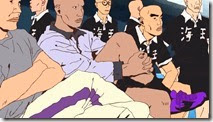 |
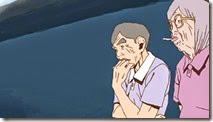 |
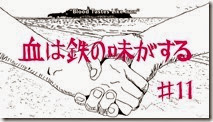 |
 |
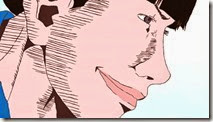 |
 |
 |
 |
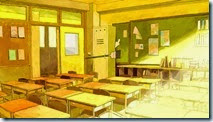 |
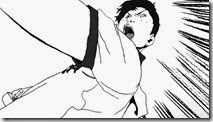 |
 |
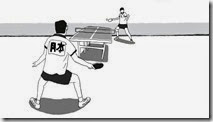 |
 |
 |
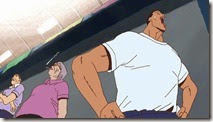 |
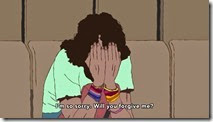 |
 |
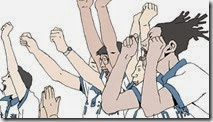 |
 |
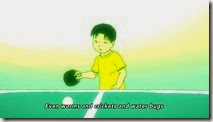 |
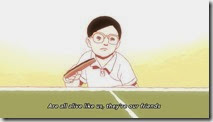 |
 |
 |
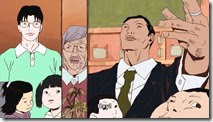 |
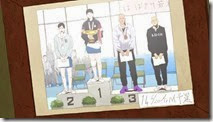 |
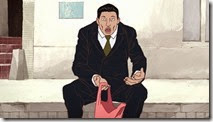 |
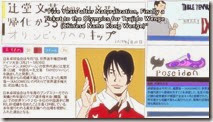 |
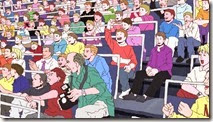 |
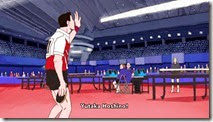 |
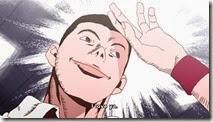 |
 |
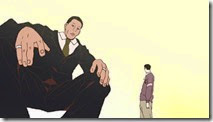 |
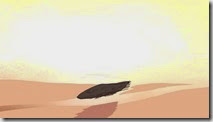 |
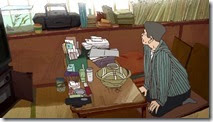 |
 |
 |


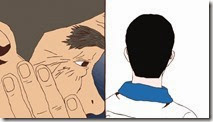
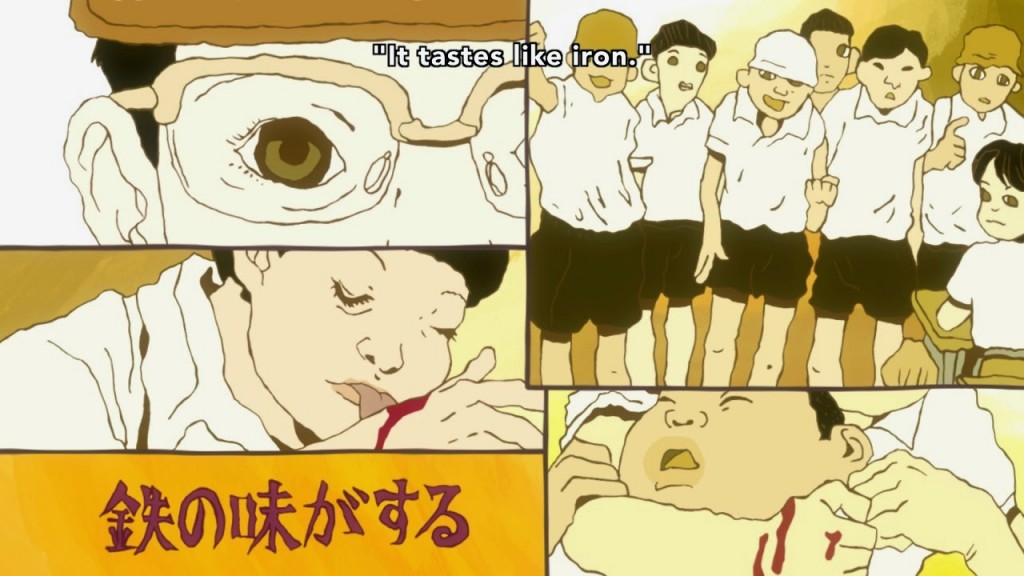
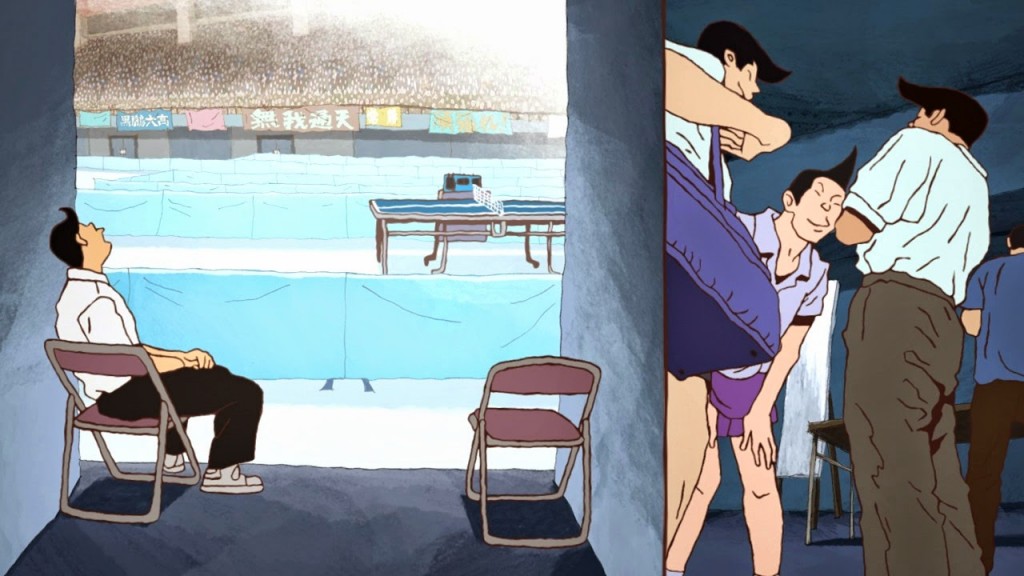
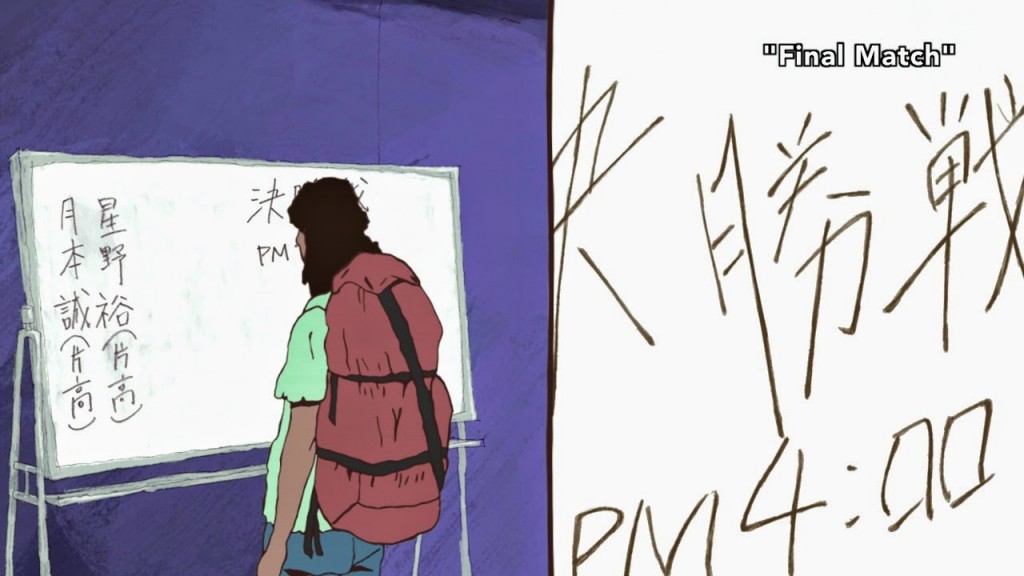
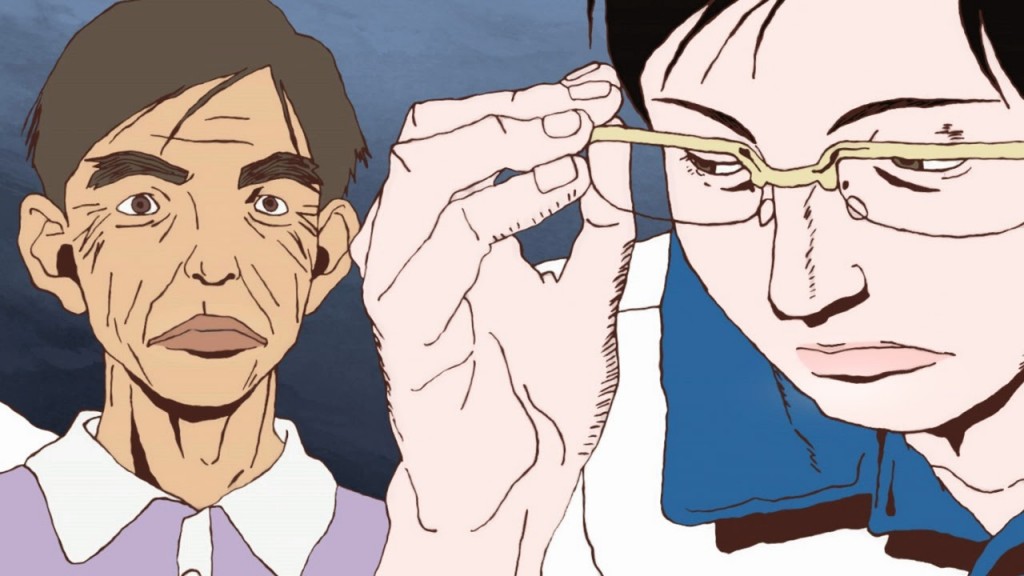
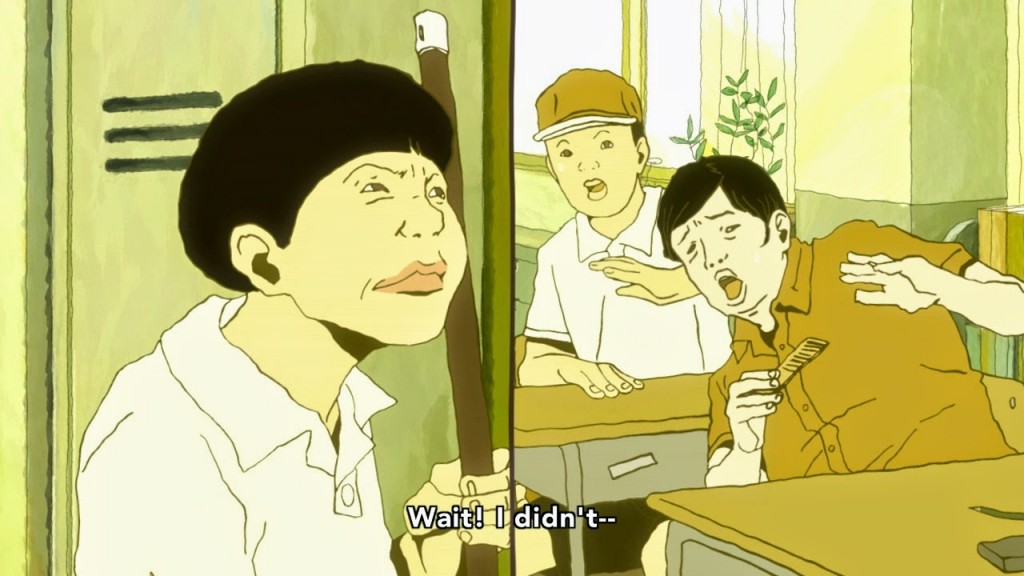
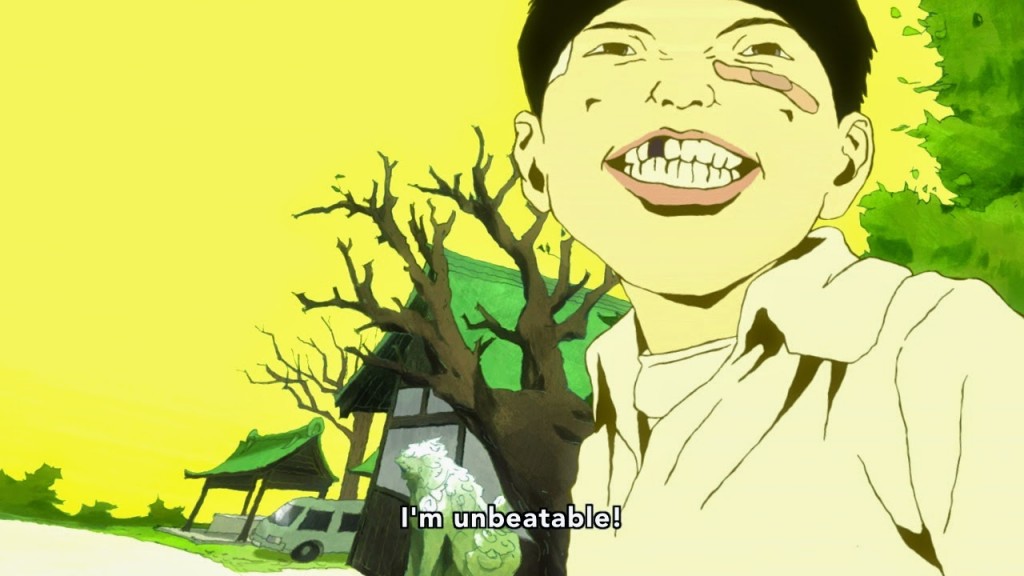
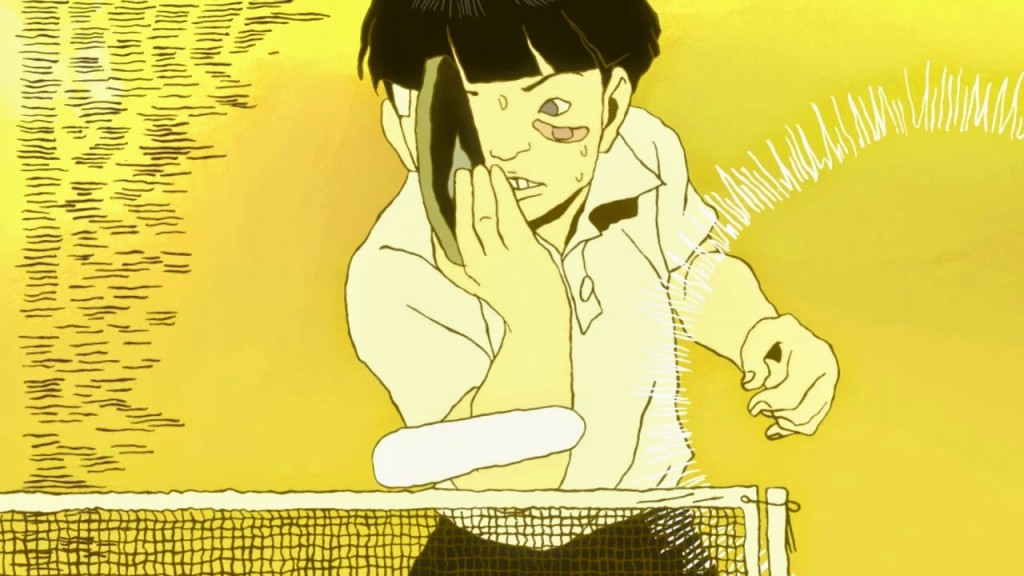
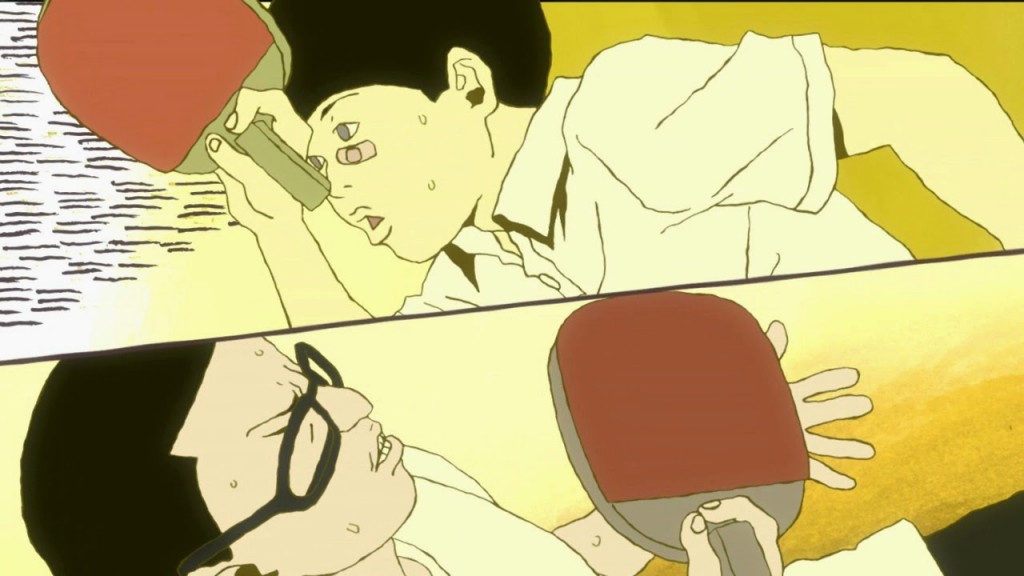
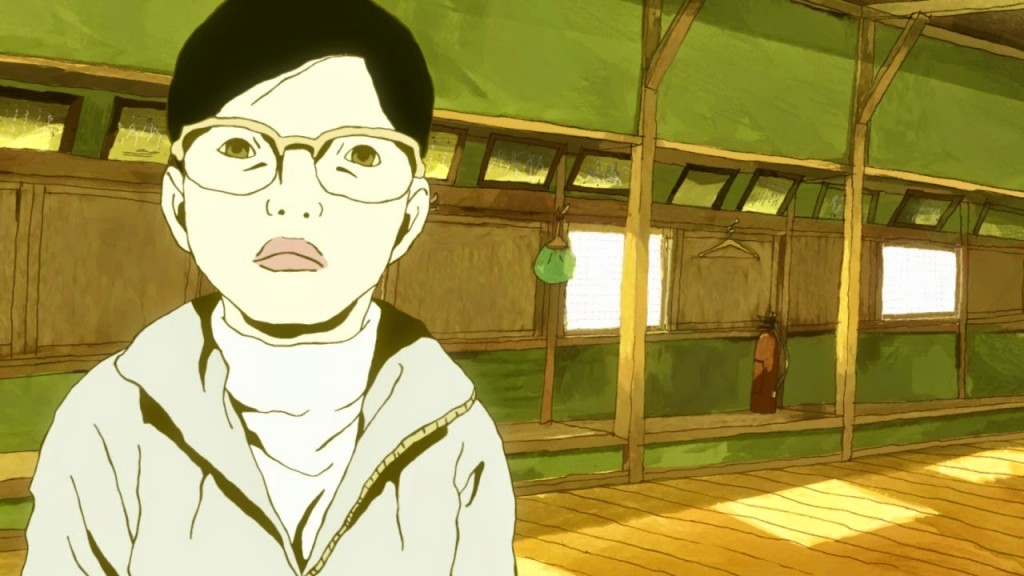
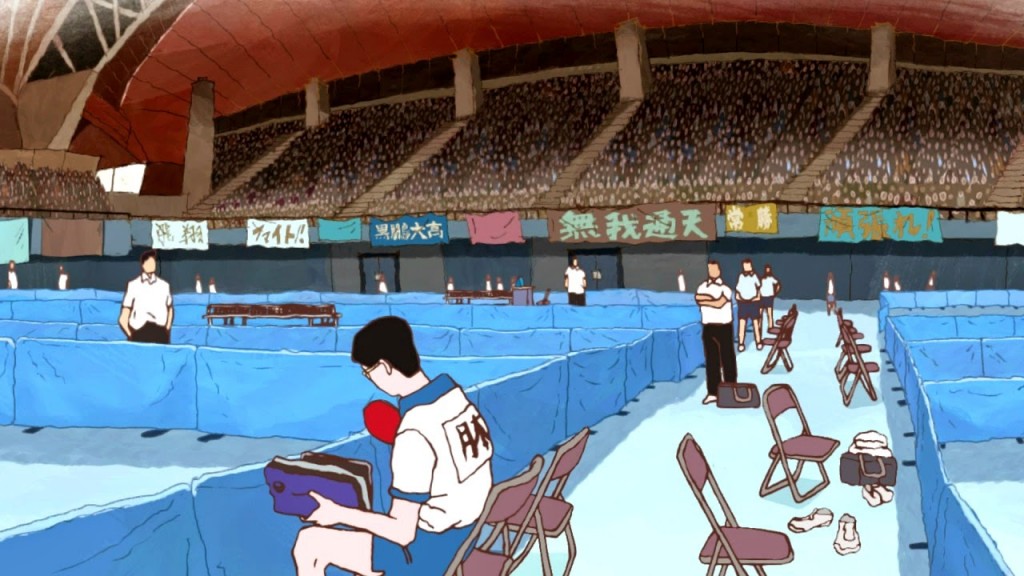


kuromitsu
June 20, 2014 at 9:17 am"Wenge becoming a naturalized Japanese and playing for the national team was a fascinating way for his arc to conclude" – Not only that; he got there by beating out Dragon. (Sure, they say that Dragon was removed due to health issues, but the reactions from Dragon and Smile make it clear that this is just an excuse.) This says quite a lot about both characters, really.
Jasper
June 20, 2014 at 3:35 pmActually I thought that Dragon injured his knee, which adds another layer of parallels to the ending. But I think that Dragon seems much better off this way.
kuromitsu
June 20, 2014 at 7:36 pmThe article they show says that Dragon broke his toe and needed time off to heal. But on the same page the Kong article said that he replaced Dragon in the team, and when Dragon tells Smile that he was removed from the team Smile is like "yeah, Kong is doing great nowadays."
Nadavu
June 20, 2014 at 10:13 amI agree that the ending was a little too perfect, but it is nice to have everything tied up. One thing I don't think was actually addressed, did Dragon's father commit suicide?
admin
June 20, 2014 at 10:23 amI didn't get that impression – I thought maybe he'd drunk himself to death or caused his own demise with similair unwise life choices, but it was never made clear exactly what happened.
jim
June 20, 2014 at 4:50 pmPerhaps his father was never "saved" and could not find the right path for his life, as dragon and smile had. Maybe he never fully accepted that he wanted to work with flowers for a living, and lived depressingly trying to live out other people's wishes and not his own.
Kurama Hitsugaya
June 20, 2014 at 7:21 pmI don't remember that ending with Kong Wenge in the manga, I don't think they mentioned him at all? I also remember for sure that Peco went on to play for Germany, not Japan.
P.S. Yuasa started his own studio!
Carrie
June 20, 2014 at 10:16 amWell that ending was certainly a lot happier then I was expecting but I'm glad it played out so beautifully. I miss this show already D:
Jasper
June 20, 2014 at 3:33 pmI absolutely adored that ending and this show. It was so positive and wonderful and I'll remember it for a very long time. Having Tsukimoto and Kazama discuss things at the end was lovely since they were kind of both the ones who most needed to find happiness.
I also loved the shot of little Peco's maths test.
When an anime is completed, then on MAL only the scores of people who have also completed the anime are accounted for. That explains why most anime get a boost in ratings after they finish airing. Not that MAL scores hold value in any way.
As to noitaminA, I was surprised to see how Psycho-Pass is quite a hit, even in a 'mainstream' sense as I saw quite a bit of merchandise for it at a convention alongside big shonen hits. It wasn't the greatest show but it certainly wasn't terrible and gives me hope.
melodic thoughts
June 20, 2014 at 5:54 pmI always thought psycho-pass was an obvious hit kind of show though. Even if it isn't under noitamina i'm sure things wont change. I agree psycho pass is pretty good too (comparing to other commercial hits)
admin
June 21, 2014 at 12:13 amYeah, Psycho-Pass was a pretty good series, but that was a safe commercial success – hardly a classic old-school NoitaminA show.
Zeta Zero
June 21, 2014 at 11:19 amPsycho-Pass was safely in my comfort zone but I agree it shouldn't really have aired on NoitaminA (at a time when that name actually meant something). Would have been afforded 2 more episodes as well in a normal time slot.
melodic thoughts
June 20, 2014 at 5:57 pmYes I love the director's witty sequences too. One thing about this show is that not only does it adapt a one-course well, it pushes things along quickly without feeling rushed, It's great that this show doesn't really rely on narration.
I really love how their friendship is fleshed out, and hearing Smile's laugh… wow, such a heartwarming moment
BigFire
June 24, 2014 at 7:43 pmThe source material only have 5 volume. It wasn't as if they actually have a lot of material to go much further.
Zeta Zero
June 21, 2014 at 11:26 amHe's a very Wabi-sabi (beauty in imperfection – sort of) director, and Ping Pong is a very Wabi-sabi show.
Agreed. It's like rakuyaki in animated form.
Ronbb
June 21, 2014 at 3:00 pmI'm impressed by Ping Pong from top to bottom, and from the start to the end — it is one of my three most anticipated shows of the season. I was wow'd by the dialogue and the character, Wenge when the show premiered, but this show kept coming and proving Yuasa-sensei an outstanding director. I sometimes feel that Ping Pong is more of a character drama than a sports show. It delved so much deeper into the characters, showing us their growth than even talking about ping pong at all. I'm happy with the ending — the way Koizumi, Obaba, and Kazama Taku reunited, and how much more talkative and happier Smile has become at the end.
I agree that Ping Pong is a very Wabi-sabi show, and I also think that Ping Pong exemplifies the beauty of less-is-more. Many times in the show the characters were only given a line or a couple of frames, but that's powerful enough to unveil the thoughts and emotions of the characters while keeping the story going. Ping Pong has proved itself a magnificently written and directed show — a rarity these days — and as neatly as it wrapped up, I want more…I want more shows like Ping Pong.
Sylpher
June 21, 2014 at 8:06 pmPing Pong has been a fresh change from the usual sports anime, both in style and storytelling by focusing on sports psychology and how the game affects the lives and identity of the main characters. Characters who experience so many up-and-downs during the series. I therefore thought the neat ending was fitting, since it illustrates the level of maturity they achieved from their experiences.
In the end Peco became my favorite character instead of Kong. The way he evolves from an optimistic big talking but naïve chump to a humiliated, depressed nobody and then fights back to become a genuine champ who now backs up his big words (it’s like watching Ernests Gulbis) is simply beautiful and inspiring.
I hope this trend of unusual anime in spring continues: Last spring delivered the masterpiece Flower of Evil, this year’s Ping Pong is almost as good, so I’m excited to see what next year has in store.
nicoleranderson
June 24, 2014 at 5:27 amOh, wow wow wow!!! I just watched the Ping Pong finale, and I'm at a complete loss as to how I was able to wait until now. There were so many aspects of this episode that were absolutely perfect–probably one of the best series finales I've seen in a long time. I'm actually content knowing that this was the final episode and that there will be no more. Everything wrapped up so sweetly.
There were so many moments in this episode that made me ecstatic–Peco's "I love ya" before playing that international game, Dragon questioning if he had done something wrong along the way to end up single (haha, buddy. If you only knew), Wong playing on the Japanese team, Smile getting a girlfriend (what?!). Oh, I could go on, but you've seen it, so you're already well acquainted with all of the tiny moments that came together to make such a seamless finale.
Assuming Peco would win, I was initially upset, but as the episode played out, I realized that what Smile needed wasn't another win to add to his nearly infinite collection. I should have trusted the people behind the scenes–they knew what they were doing, and they did it very well.
Initially, the art perturbed me so much, I almost didn't watch anything beyond the first episode. Now I realize the art and the filmography is what makes this anime the brilliant and unique experience that it is. Also, I tried to picture Ping Pong with the same art style as Haikyuu and I nearly lost it hahaha
In conclusion, wow. I feel blessed to have watched this series.
ih
May 5, 2023 at 3:36 pmtwo small notes, you refer to Kozumi Ryu as his son, Koizumi Taku (Emiko’s father)
also small note, ‘Obaba’ is Tamura